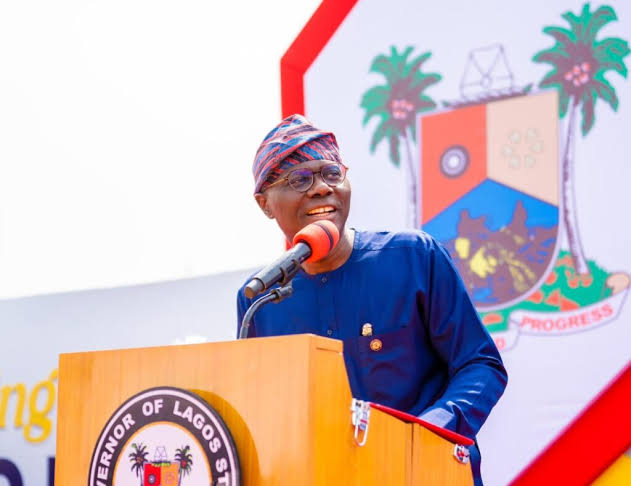For ten straight years—2014 to 2024—the University of Ilorin held an enviable position in Nigeria’s academic landscape. It topped the UTME application charts year after year. Unilorin became synonymous with consistency and stability, a safe bet for students and parents alike. But in 2025, there’s a new sheriff in town. Lagos State University (LASU), once just another name on the list of state-owned universities—and often dismissed as a “glorified secondary school”—rose to the top and claimed the throne.
The question is: what changed?
The short answer? Audacious and visionary governance. The long answer? A series of bold, deliberate, and student-focused innovations championed by Governor Babajide Sanwo-Olu that reshaped education in Lagos State.
Governor Sanwo-Olu didn’t just look at infrastructure or enrollment numbers—he created a system that worked. His administration saw education not as a routine government function but as a lever for transformation. In a state as complex as Lagos—with its surging youth population and high demand for opportunity—that mindset was everything.
Take the EKOEXCEL initiative, for instance. What began as a digital intervention in basic education grew into a state-wide foundation for tech-driven learning. Teachers were trained with practical tools. Tablets replaced chalkboards. By 2023, WAEC performance among public school students improved noticeably. Confidence in the public school system began to return. Parents started to rethink private school as the default.
But the real game changer was what happened in the tertiary sector. LASU transformed from a typical state university into a symbol of academic revival. Sanwo-Olu’s government poured investment into infrastructure—lecture theatres, hostels, tech hubs. It also fast-tracked approvals for two new universities—Lagos State University of Education (LASUED) and Lagos State University of Science and Technology (LASUSTECH)—to absorb the growing number of qualified students seeking quality higher education.
More than just infrastructure, LASU began reflecting a more holistic academic culture. Scholarships for indigenes increased. Bursary payments became more transparent. And academic excellence began to come with real rewards—automatic employment for top graduates, postgraduate funding, and cash awards that changed lives.
People took notice. Students who once aimed for universities in distant states started putting LASU first. Not just because it was closer, but because it now stood for quality and opportunity. And let’s face it—being a student in Lagos has its advantages. Access to industries, creative spaces, internships, and entrepreneurial networks gives LASU graduates a practical edge.
This isn’t just about 2025—it’s about what’s coming next. Plans to convert LASU’s College of Medicine into a full University of Medicine are already underway. Digital literacy programs across tertiary institutions are expanding. More hostels are being built. Safety infrastructure is improving. The trend is real and sustained.
Governor Sanwo-Olu may not have shouted about education reform, but the results are speaking. Lagos has evolved from a commercial powerhouse into an academic destination. And with youth forming the majority of Nigeria’s population, UTME stats like this are more than numbers—they’re proof that when leadership gets it right, the people respond.
Unilorin held the crown for a decade, but LASU isn’t just stepping into the spotlight—it’s redefining it. And if this trajectory continues, Lagos won’t just lead in education—it’ll become the gold standard for what’s possible in Nigeria’s public university system.
